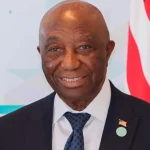The Nigerian Senate has confirmed the appointment of a new board for the Nigerian Communications Commission (NCC), marking a significant milestone in reinforcing regulatory oversight and leadership within Nigeria’s telecommunications sector.
The confirmation, announced during Tuesday’s plenary session, followed a successful screening conducted by the Senate Committee on Communications. The appointments are expected to inject renewed focus, accountability, and strategic direction into the nation’s telecom regulatory body.
Idris Ibikunle Olorunnimbe Appointed as NCC Board Chairman
Idris Ibikunle Olorunnimbe, representing the South West, was confirmed as the Chairman of the NCC Board. His appointment signals a new era of leadership for the Commission, which plays a central role in driving Nigeria’s digital transformation agenda and ensuring fair, transparent telecom operations nationwide.
Alongside Olorunnimbe, the Senate also approved the following Non-Executive Commissioners:
- Maryam Bayi – North East
- Senator Ramoni Olalekan Mustafa – South West
- Ikechukwu Ugwuegede – South East
- Princess Oforitsenere Emiko – South South
- Christopher Sandy Okorie – South South
These newly confirmed members will work in collaboration with the NCC’s executive leadership team, previously cleared by the Senate.
Confirmed NCC Executive Leadership
The NCC’s executive team, already in office, includes:
- Dr. Aminu Maida – Executive Vice Chairman and Chief Executive Officer (North West)
- Engineer Abraham Oshadami – Executive Commissioner, Technical Services (North Central)
- Rimini H. Makama – Executive Commissioner, Stakeholder Management (North Central)
Together, this leadership group is expected to steer the NCC through Nigeria’s next phase of digital expansion, balancing innovation with regulatory oversight.
What to Expect from the New NCC Board
The reconstituted board assumes responsibility at a time when Nigeria’s telecom industry is undergoing major transformation. Key priorities for the new NCC board include:
- Expanding broadband penetration to underserved areas
- Strengthening consumer protection and data privacy
- Enhancing cybersecurity and network resilience
- Accelerating 5G deployment and next-generation network adoption
- Driving digital inclusion and rural connectivity
- Aligning Nigeria’s telecom policies with global technological standards
Industry observers have welcomed the Senate’s confirmation, describing it as a strategic move to ensure stability, policy continuity, and innovation within the telecom regulatory framework.
The NCC’s Role in Nigeria’s Digital Economy
Established under the Nigerian Communications Act of 2003, the NCC serves as the nation’s primary telecommunications regulator, responsible for:
- Promoting fair competition among operators
- Protecting consumer and industry interests
- Encouraging infrastructure investment and innovation
With over 220 million active mobile subscriptions and rising internet penetration, the telecommunications sector continues to be a key driver of Nigeria’s economy, contributing more than 14% to the national GDP.
The newly confirmed board is expected to build on this foundation by fostering transparency, innovation, and inclusive growth across Nigeria’s digital ecosystem.
A Renewed Vision for Telecom Governance
The confirmation of the new NCC board is widely seen as an opportunity to modernize Nigeria’s telecom regulatory landscape and ensure it keeps pace with global trends in connectivity and digital transformation.
As Nigeria seeks to deepen its broadband reach, expand 5G infrastructure, and strengthen consumer trust, the NCC’s refreshed leadership will play a decisive role in shaping the future of digital communication and inclusion across the nation.













